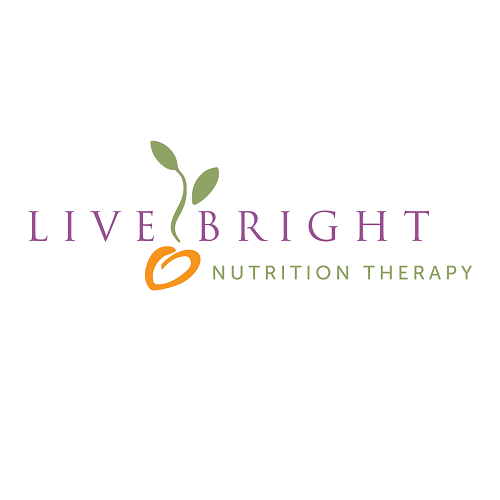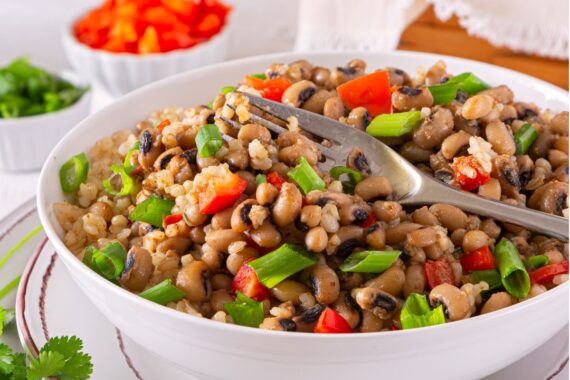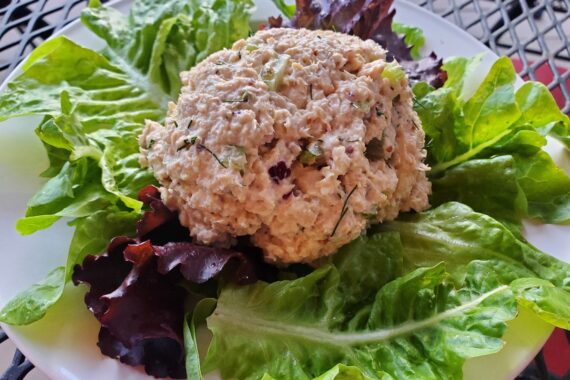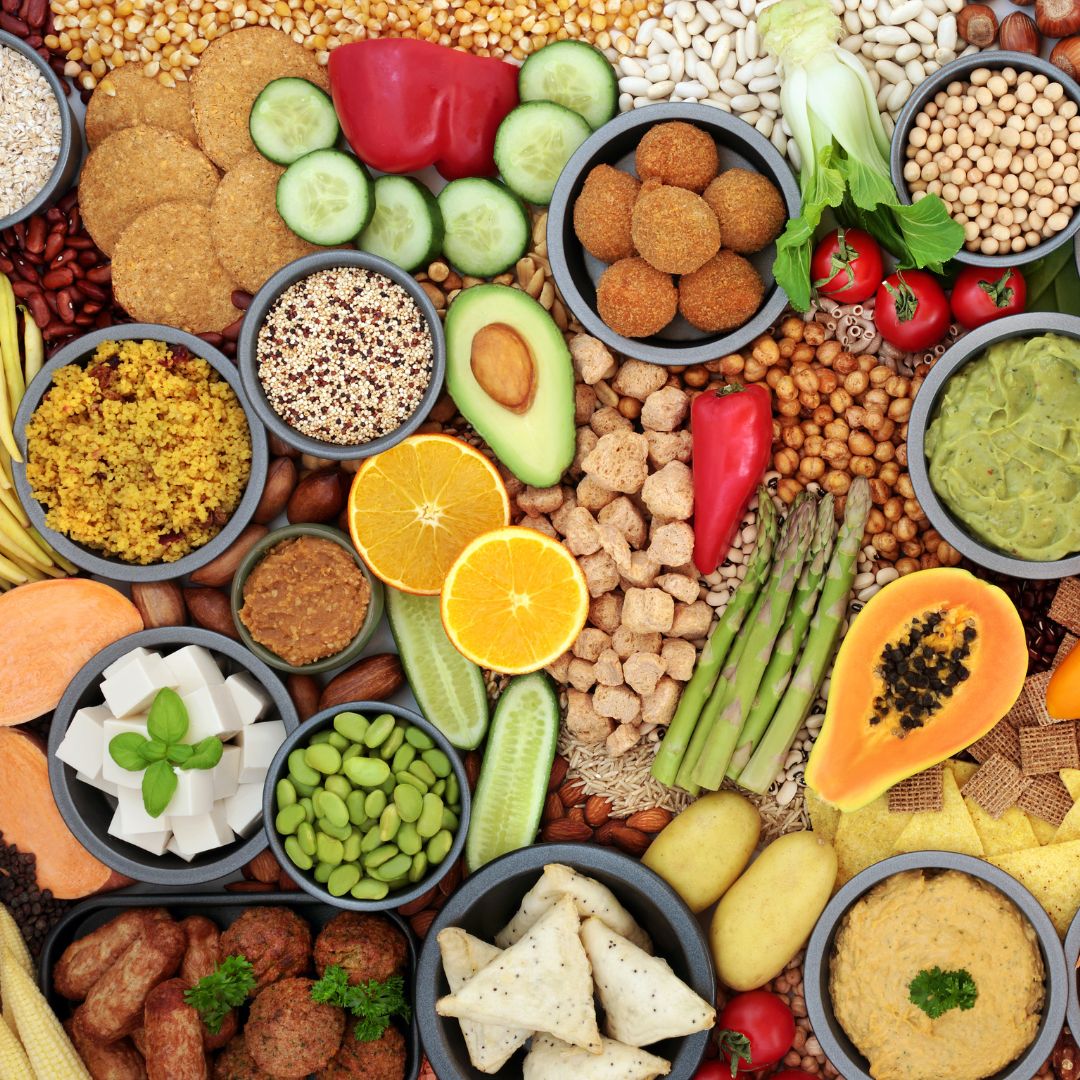
Getting All the Nutrients You Need on a Plant-Based Diet
“Plant-Based – adj. (of food or a diet) consisting largely or solely of vegetables, grains, legumes, pulses or other foods derived from plants, rather than animal products.”
Have you wondered if a plant-based diet would be right for you?
Plant-based eating has become a popular topic in the past 10 years. The term has brought some confusion into the nutrition world, as it means different things to different people. What exactly does plant-based eating mean?
The term “plant-based” generally refers to:
- Veganism, which includes no animal products of any kind
- Vegetarianism, which may include eggs and dairy products
According to a 2024 Gallup poll, about 1% of the US population identifies as vegan and 4% identifies as vegetarian.
The conversation around plant-based eating has progressed to an additional term called “plant-forward” eating. A plant-forward diet centers the meal around unprocessed plant foods, but doesn’t restrict other foods such as animal foods.
There are various reasons why people choose to eat a plant-based diet. There are ethical concerns around animal welfare, environmental concerns, health concerns, religious or spiritual beliefs, and cultural preferences.
Regardless of where you fall on the spectrum of plant-based or plant-forward eating, it’s important to understand the nutritional implications of choosing a plant-only or almost plant-only diet. I’ve seen clients and friends become gung-ho about embracing a vegan diet, without understanding that simply not eating animal foods can lead to serious nutrient deficiencies over time, if not well thought out.
This article identifies the nutrients that are harder to get on a plant-based diet, and 12 strategies for getting enough of them.
Nutrients that are harder to get on a plant-based diet
Certain nutrients are more difficult to get in sufficient quantities on a plant-based diet. This is due to lower concentrations of these nutrients in plant-based foods and/or reduced bioavailability compared to animal-based sources. Bioavailability refers to how well a nutrient is absorbed and utilized by the body.
Below are key nutrients that are harder to get on a plant-based diet along with their plant-based sources:
Protein
Plant-based protein sources often lack one or more of the nine essential amino acids, making them “incomplete” proteins. And while some foods like quinoa, soy, and chia are complete proteins, they may not be consumed in sufficient amounts to meet nutritional requirements. Combining different plant-based protein sources can help, but it requires attention to dietary variety.
Sources of complete protein: Soy (tofu, tempeh, edamame), quinoa, chia seeds, hemp seeds, amaranth, buckwheat, pistachio nuts, spirulina, nutritional yeast, and fortified vegan protein powders.
Incomplete sources: Beans, lentils, peas, nuts, seeds, oats, brown/wild rice, and other whole grains. Combining legumes with whole grains, legumes with nuts/seeds, and whole grains with nuts/seeds helps ensure that all nine essential amino acids are eaten. These don’t have to be eaten at the same meal.
Vitamin B12
Vitamin B12 is found naturally only in animal products. Plant foods do not contain B12 unless they are fortified or grown in B12-rich environments, such as some nutritional yeasts. Without supplementation or fortified foods, vegans are at high risk of deficiency.
Sources: Fortified nutritional yeast, plant milks, and cereals.
Calcium
While some plant foods like leafy greens, almonds, and fortified products contain calcium, bioavailability varies. Certain greens (e.g., spinach) are high in oxalates, which bind calcium and reduce its absorption. Calcium is best absorbed when consumed with foods rich in Vitamin D. While vegans don’t eat dairy, vegetarians may eat calcium-rich dairy products, which are well-absorbed.
Sources: Dark leafy greens (kale, collard greens), beans, broccoli, almonds, fortified tofu, fortified plant milks, and fortified plant-based yogurts.
Vitamin D
Vitamin D is primarily obtained through sun exposure or from animal-based foods like fatty fish, eggs, and liver. Although fortified plant milks and mushrooms exposed to UV light contain some vitamin D, they may not provide adequate amounts. Most plant foods lack significant amounts of Vitamin D, making supplementation or fortified foods necessary, especially in areas with limited sunlight.
Sources: Sunlight exposure, fortified plant milks, fortified soy products, fortified juices, and mushrooms exposed to UV light, supplementation.
Iron
Iron in plant foods is in the non-heme form, which is less bioavailable than the heme iron found in animal products. Absorption of non-heme iron is influenced by inhibitors like phytates (found in grains and legumes) and tannins (in tea and coffee). Pairing iron-rich plant foods with Vitamin C-rich foods (citrus fruits, bell peppers, strawberries) can enhance absorption.
Sources: Non-heme iron is in spirulina, dark leafy greens, tofu, buckwheat, quinoa, legumes, pumpkin seeds, raisins, broccoli, almonds, dark chocolate, and fortified foods.
Zinc
Zinc absorption is reduced by phytates, which are abundant in plant foods like legumes, whole grains, and nuts. These compounds bind to zinc and make it less bioavailable. Vegans may need to consume up to 50% more zinc than the RDA to compensate for reduced absorption.
Sources: Legumes, walnuts, hemp seeds, chia seeds, wheat germ, tofu, oats, quinoa, and shiitake mushrooms.
Omega-3 Fatty Acids
Plant-based omega-3 sources, like flaxseeds and chia seeds, provide alpha-linolenic acid (ALA), which the body must convert into the active forms EPA and DHA. EPA and DHA are essential to human health, including heart health, immune system function and fetal development. This conversion is inefficient, with rates often below 5%, making it challenging to obtain sufficient EPA and DHA without supplementation from algal oil. Omega-3 fatty acids, specifically in the forms of EPA and DHA, are primarily found in fish (and in smaller amounts of grassfed beef and game meats).
Sources of ALA: Ground flaxseeds, chia seeds, hemp seeds, walnuts, avocado, and algal oil supplements.
To balance omega-3 and omega-6 intake, limit processed oils and prioritize omega-3-rich foods.
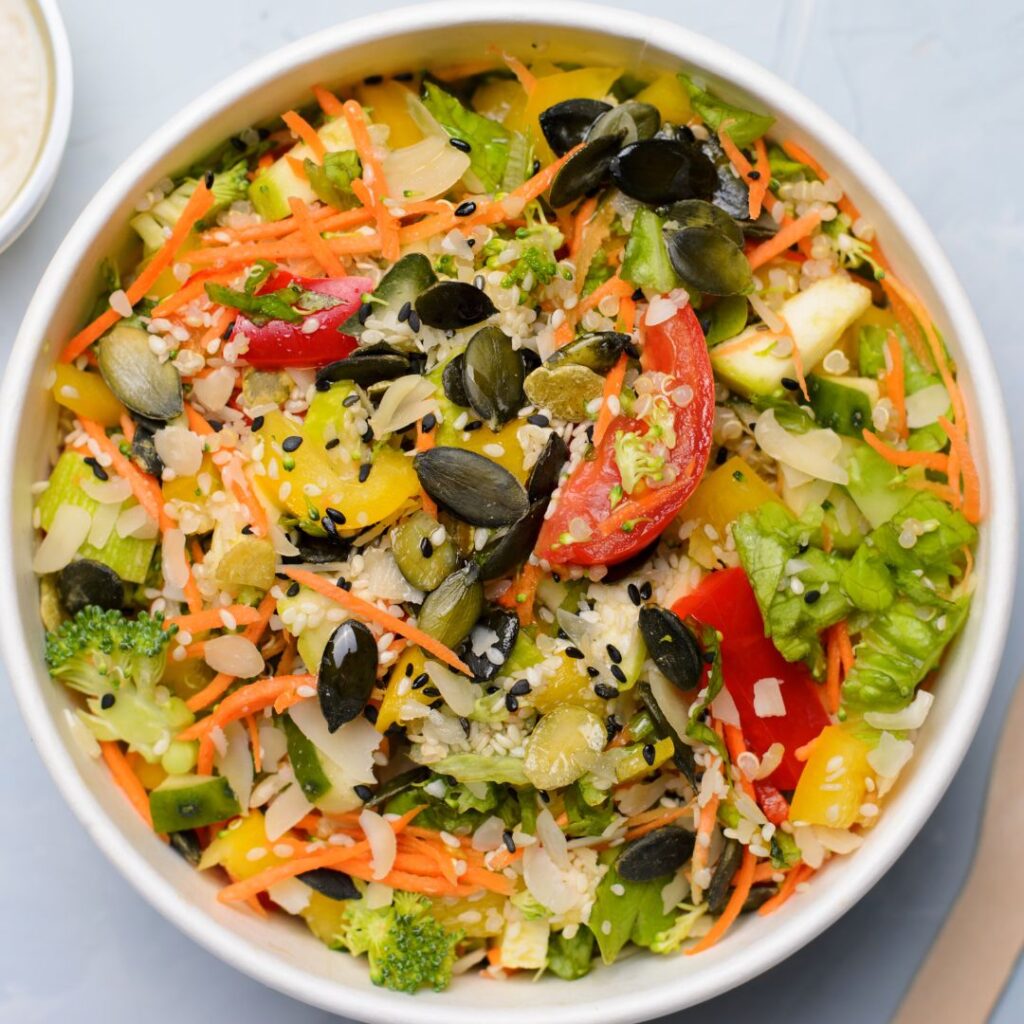
Top 12 strategies for getting all your nutrients on a plant-based diet
1. Eat whole unprocessed foods and skip the processed vegan foods
One mistake that new plant-based eaters make is not realizing that meat substitutes don’t have the same nutrient profile as actual meat. Meat substitutes such as Impossible Burger are processed foods, piecing together isolated parts of plants and containing non-food additives. Jackfruit may have a meat-like consistency, but it is a fruit with an entirely different nutrient profile than meat. In addition, there is no shortage of vegan junk foods out there that have no nutritional value. The take-away? The same as with any diet – eat whole unprocessed foods!
2. Include a complete protein food daily
Consume plant-based complete proteins such as hemp seeds, chia seeds, quinoa, buckwheat, tofu, tempeh, spirulina, amaranth, and fortified nutritional yeast each day. These ensure you get all essential amino acids in one food.
3. Combine incomplete plant protein foods for a full amino acid profile
Pairing incomplete proteins together helps make sure all 9 amino acids are consumed. Pair grains (like rice, quinoa, or oats) with legumes (like beans, lentils, or peas), or legumes with nuts and seeds, to form complete proteins. This doesn’t need to be done in the same meal but over the course of the day.
4. Prioritize variety
Eat a diverse range of vegetables, fruits, legumes, nuts, and seeds. Variety ensures you’re getting all essential vitamins, minerals, and phytonutrients.
5. Eat your veggies and fruits!
Eat five different vegetables of various colors each day to maximize your intake of antioxidants, vitamins, and minerals. Add 1-2 servings of fruits such as berries, apples, oranges, bananas, or any seasonal fruits. They provide fiber, antioxidants, and natural sweetness.
6. Eat a handful of nuts and seeds every day
A mix of almonds, walnuts, sunflower seeds, and flaxseeds offers healthy fats (omega-3 and omega-6), protein, and essential micronutrients like magnesium and zinc.
7. Have a high-powered salad 5 times a week
Prepare salads with 2+ cups of greens (spinach, kale, arugula), 2-4 additional vegetables, nuts/seeds, beans and/or whole grains, fermented vegetables (sauerkraut or kimchi), and fruits like blueberries or pomegranate, dressed with extra virgin olive oil. This type of salad is a nutrition bomb that feeds the beneficial bacteria in the gut as well as the person eating it.
8. Eat healthy Protein Bombs for snacks
Make protein-rich snacks with ingredients like dates, nut butter, chia seeds, hemp seeds, and protein powder. Example recipe: Mix 1 cup traditional oats, 1/2 cup peanut butter, 2 tbsp chia seeds, 2 tbsp hemp seeds, 2 tbsp maple syrup, and 2 tbsp vegan protein powder. Roll into balls and chill.
9. Include fortified foods for key nutrients
Incorporate fortified plant milks, cereals, or nutritional yeast to ensure adequate intake of B12, vitamin D, calcium, and iodine.
10. Bump up Omega-3 fatty acids
Include flaxseeds, chia seeds, hemp seeds, and walnuts to meet your omega-3 needs. Consider an algae-based omega-3 supplement.
11. Meal plan mindfully
Plan meals to ensure you’re meeting your calorie and nutrient requirements, especially for iron, zinc, and calcium. Refer to a list of plant foods high in each of these nutrients, choose tasty recipes that contain them, and make sure to include a variety of them in daily meals.
12. Supplement wisely
Plant-based eaters should have their Vitamin B12 and Vitamin D levels checked regularly, as these are very difficult to get enough of on a plant-based diet. Omega-3s are also difficult to get enough of on a plant-based diet. I recommend supplementing with algal oil for EPA and DHA, and Vitamin B12 and Vitamin D when indicated.
A plant-based diet isn’t for everyone. As always, we are all bio-individual beings, and what works for one person can be a disaster for another person. However, adopting a plant-based diet can be a rewarding and healthful choice, offering benefits for the body, the planet, and animal welfare. It’s important to approach a plant-based diet with mindfulness and intentionality to ensure you’re meeting all your nutritional needs. With careful planning, variety, and perhaps some smart supplementation, a plant-based diet can provide all the nutrients your body requires to thrive.
